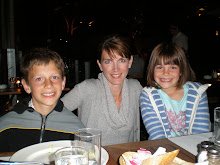


When I was five we moved to Lagos, Nigeria. I loved living there, but my mother was relived when we finally left two years later. We had to deal with coups, power shortages, American hatred, and bouts of hepatitis. There was always the fear we’d stumble across a dead body lying around. They were common on Ikorudu road near the airport where there was lots of heavy traffic; people would get hit by cars and left lying in the street. Bodies were also seen floating in the harbor washed up along the beach. And then there was always the chance you’d have a juju put on your house. Someone had put a juju on the Embassy Air Attaché’s house. Sensibly, they hired someone to take the juju off and went out of town for the weekend. And there was the incident at the house of an Embassy secretary. One morning she went out to find a dead chicken in her yard and it was surrounded by a ring of stones.
Benin is the birthplace of voodoo. I don’t know if these jujus placed on the houses of our friends in Lagos were from voodoo or just some witchcraft, but here, in the West, they are one and the same. Voodoo is a misunderstood religion, sensationalized by Hollywood and demonized by Christian missionaries. But it’s a religion that has been around for 400 years and African slaves brought voodoo with them to the Caribbean. It is practiced in places like Haiti and New Orleans.
In Benin, the religion of voodoo is officially recognized and about 60% of the population follow voodoo. The religion connects its worshipers to the land, culture and ancestors. For some of us it’s frightening since it has animal sacrifices, spirit possession and many deities. It does have a dark side where sorcerers are asked to place hexes on adversaries, but voodoo priests also pray for peace and give hope to a people who face war and AIDS.
The republic of Benin is located in West Africa on the northern coast of the Gulf of Guinea. It borders with Togo, Burkina Faso, Niger, and Nigeria.
When my father was stationed at the American Embassy in Lagos as the security officer, one of the countries he was responsible for was Benin - only then, it was called Dahomey. He traveled to Contonou, Dahomey quite often and once my mother went with him. Contonou is the country’s economic capital and its largest city. It is also where the U.S. Embassy is located, even though the official capital is Porto-Novo. Cotonou was only a three-hour drive from our house in Lagos. My parents drove along a coastal highway across the Dahomey frontier through the jungle and little villages with grasshuts. In Dahomey, the people along the road were much the same as Nigerians, dressed in colorful cloths and women carrying baskets on their heads.
Contonou was right on the ocean and had wide tree-lined streets, fresh ocean breezes, and large old houses. It was a French-speaking country and all the street signs were in French and it looked different from English-influenced Nigeria. But the country was very primitive, there was a dirt road in front of the American Embassy, and my father noticed a steady decline of the country in the two years he was stationed in Africa. This decline was due, most likely, to the government nationalizing everything and running French businesses out of the country.
While my father worked, my mother went around to the local markets and dropped cash all over Contonou. She bought carved wooded chairs, wall hangings, necklaces, brass bells and even French bread.
Benin is now one of the poorest countries in the world, and yet, it has some of the best food in the region.
For our Beninese meal I made couscous Azindessi and it was delicious. It had chicken, tomatoes, onions, garlic and lots of peanut butter and dry-roasted peanuts. Everyone loved it and even took two or three helpings. It is something I might make again.
The night I made the couscous Azindessi both the children were at a friend’s houses. Kevin and I were able to enjoy a nice quiet meal alone. Before long, the children came home and I had their couscous Azindessi ready for them at the table.
When Julia was dropped off by her friend’s parent, Julia and her friend were giggly and goofing off as we stood by the front door. As the parent and child left the house Julia ran outside after them. “Julia, come back in here and eat your couscous!” I yelled. The parent of Julia’s friend and I had a laugh over that.
I wonder if my mother had said something similar to me when we lived in Nigeria, the country next door to Benin.


Tasty article, Jennifer. I haven't travelled much, (I was raised on Grandma's perogies) but have enjoyed goulash in Istanbul and Pad Thai in Phuket. This week my husband and I leave for five days in Bali, then three in Kuala Lampur. As always, its the food I'm curious about. For some reason, in my novels the main characters are always in love with food. Wonder what Freud would say? I loook forward to trying couscous Azindessi.
ReplyDelete